Australia teams up with Thailand for equitable access to medicines.
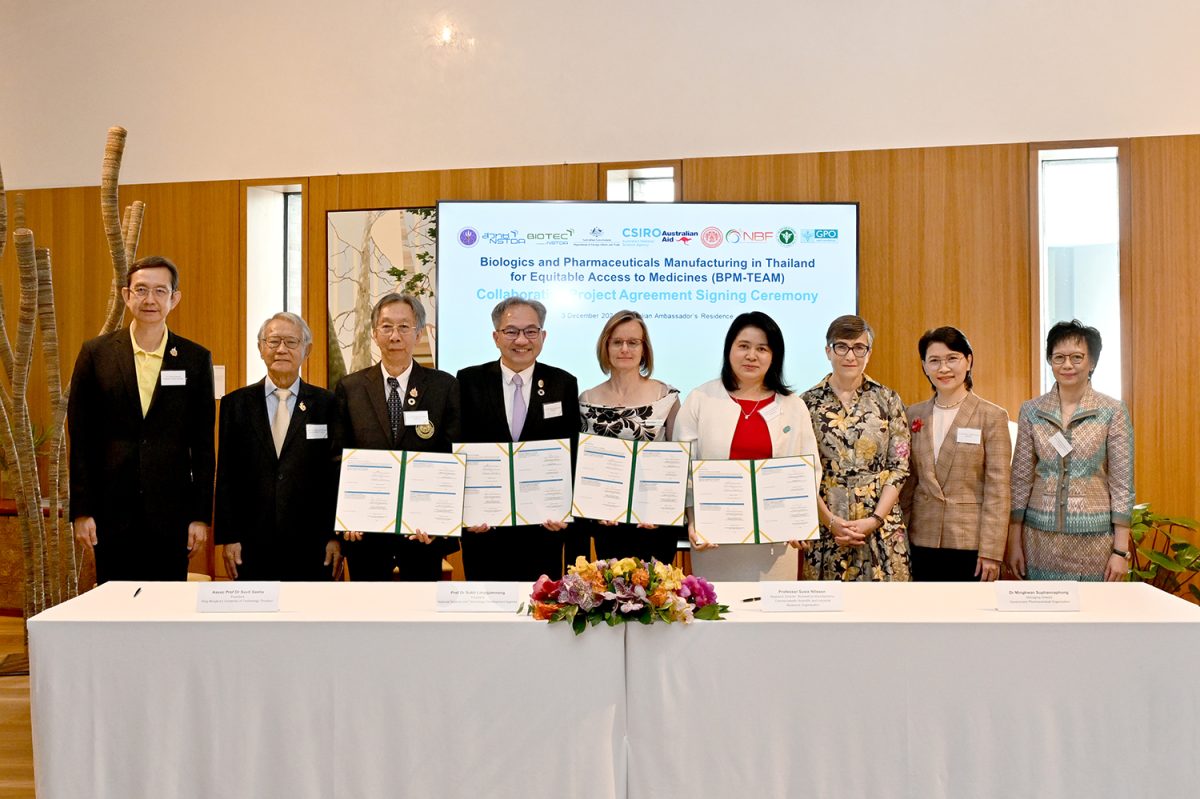
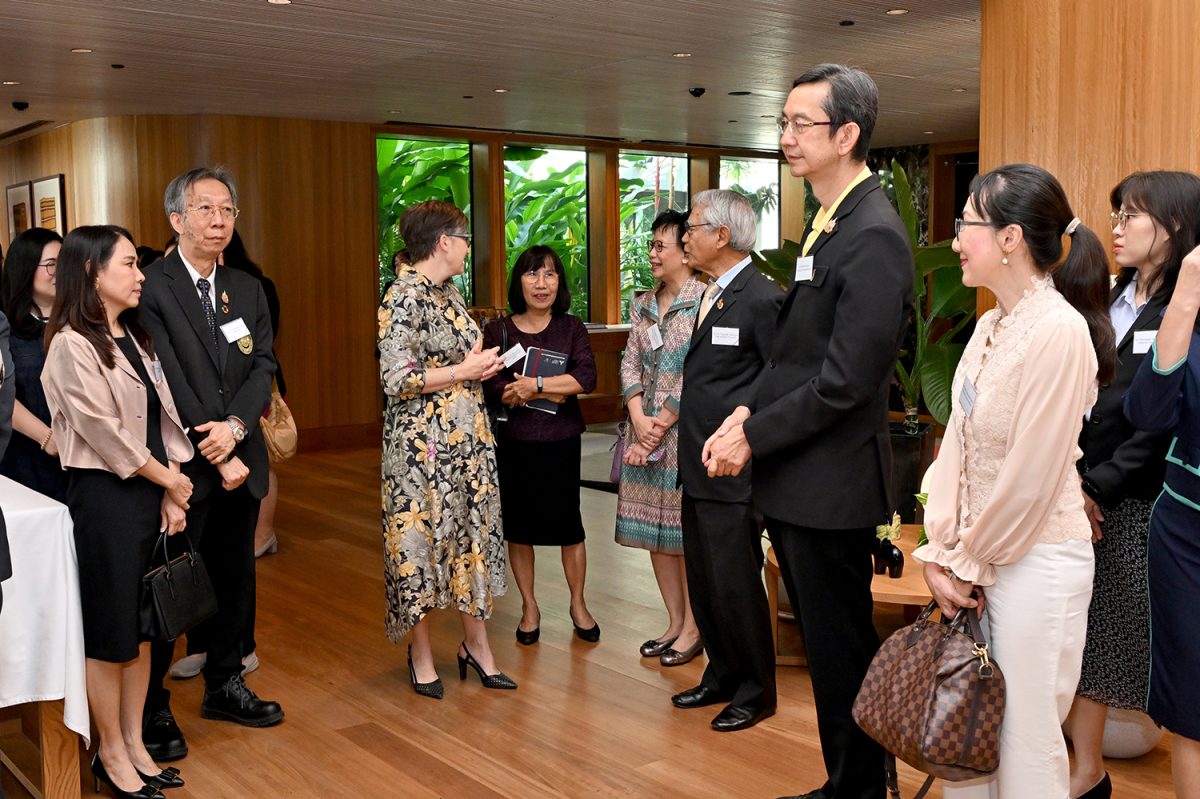
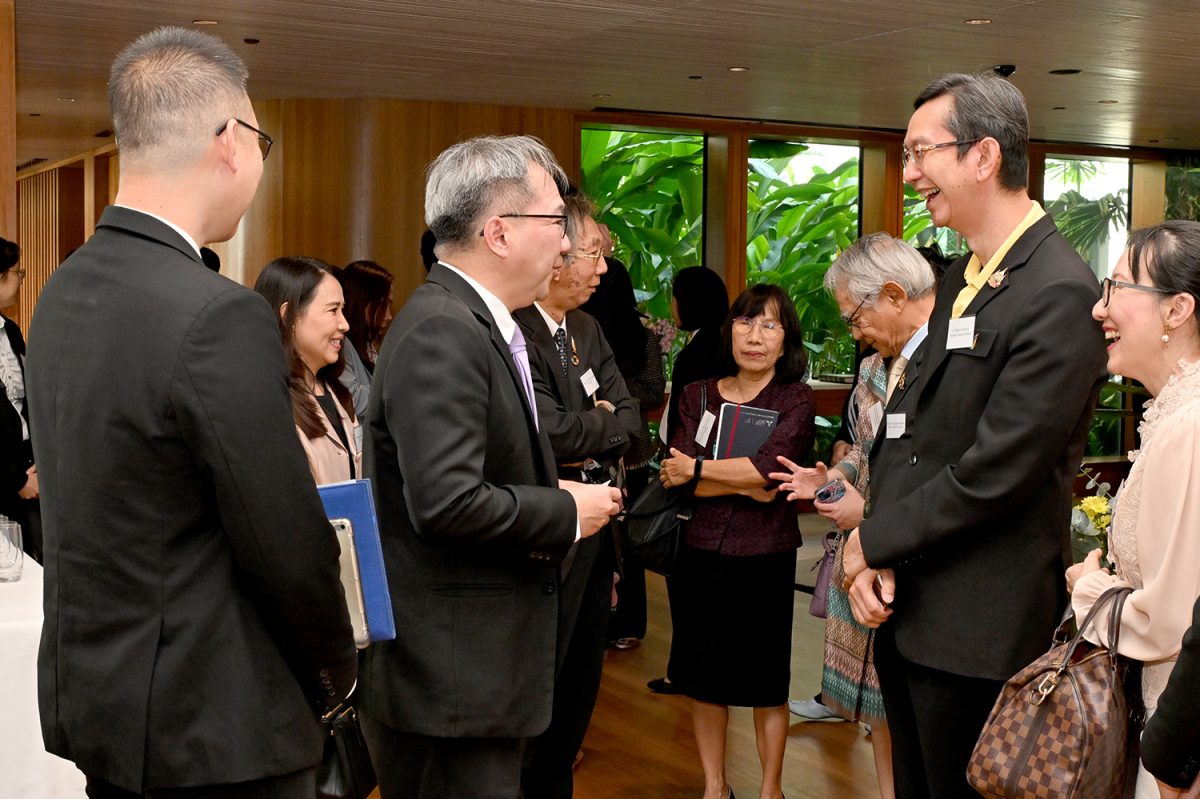
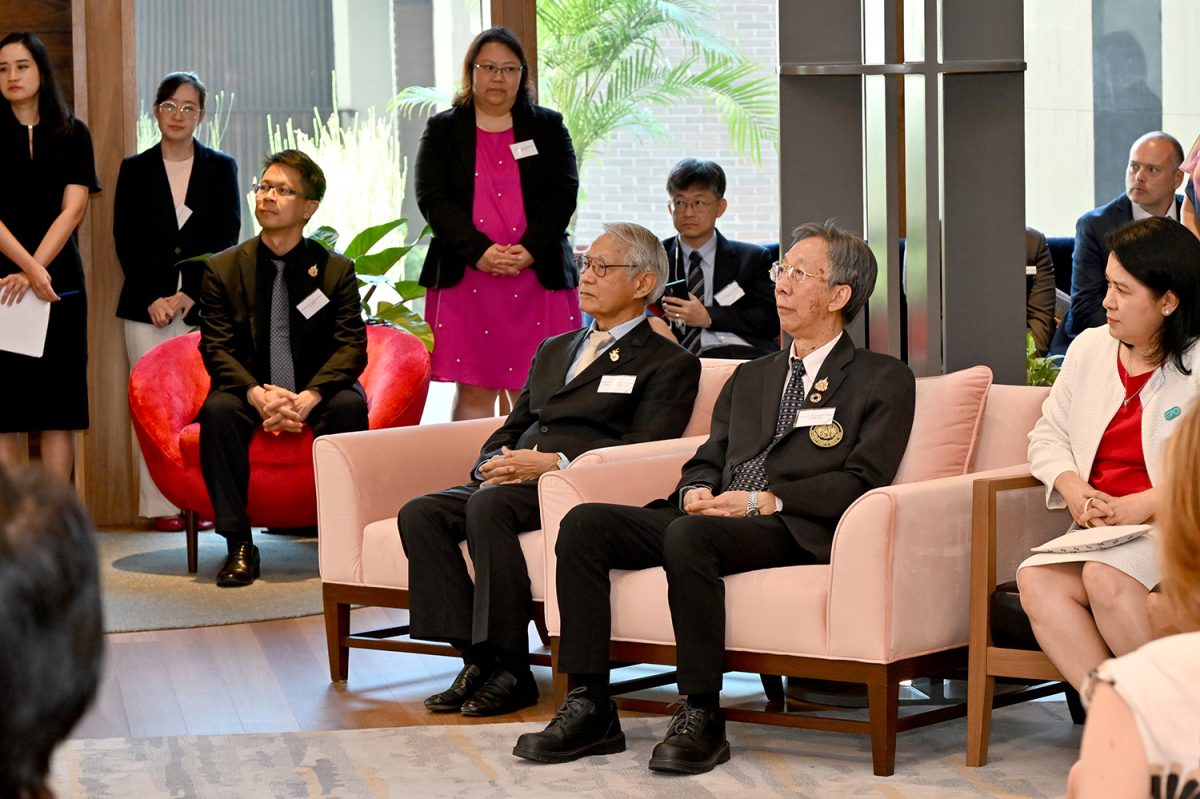
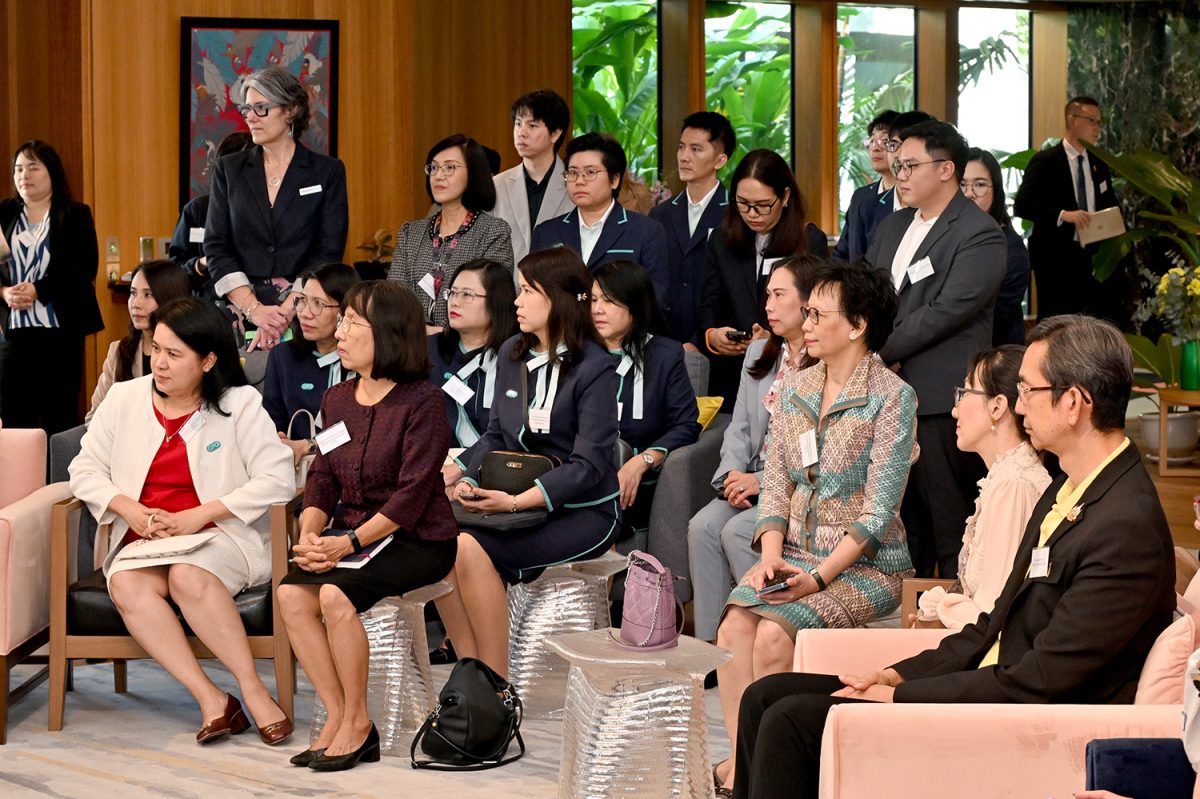
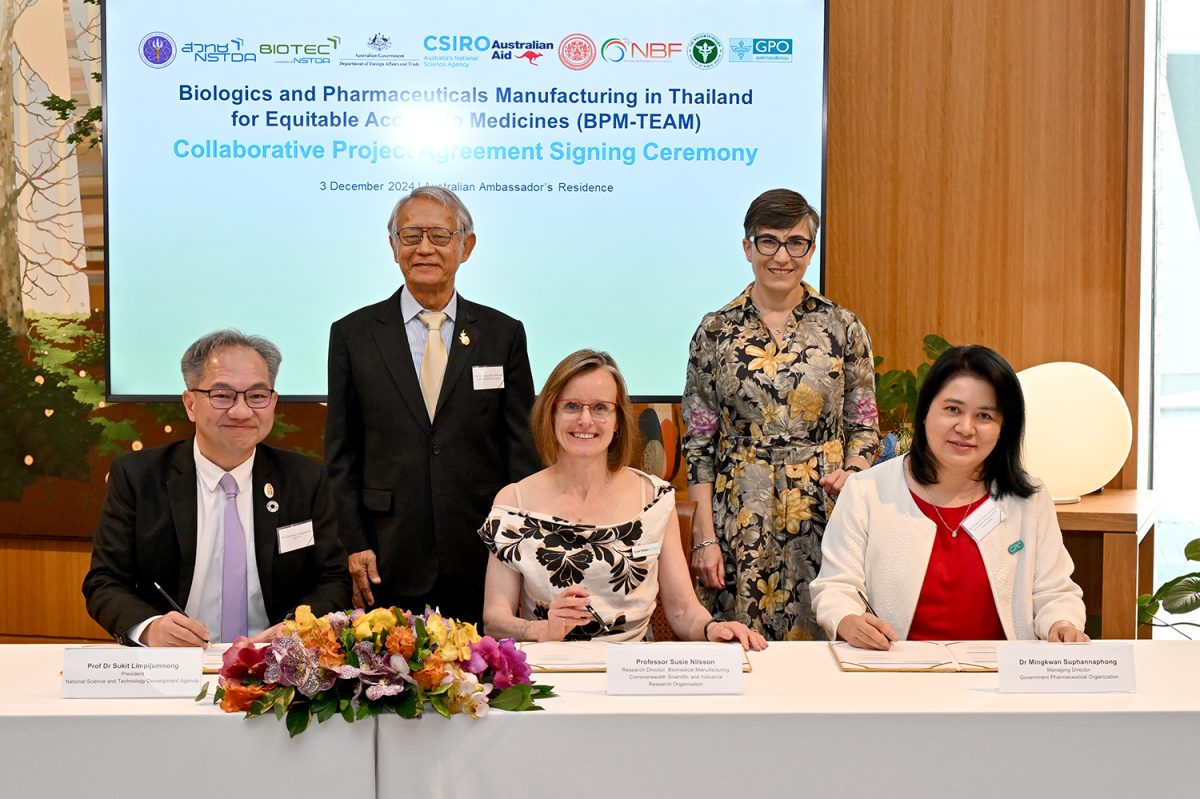
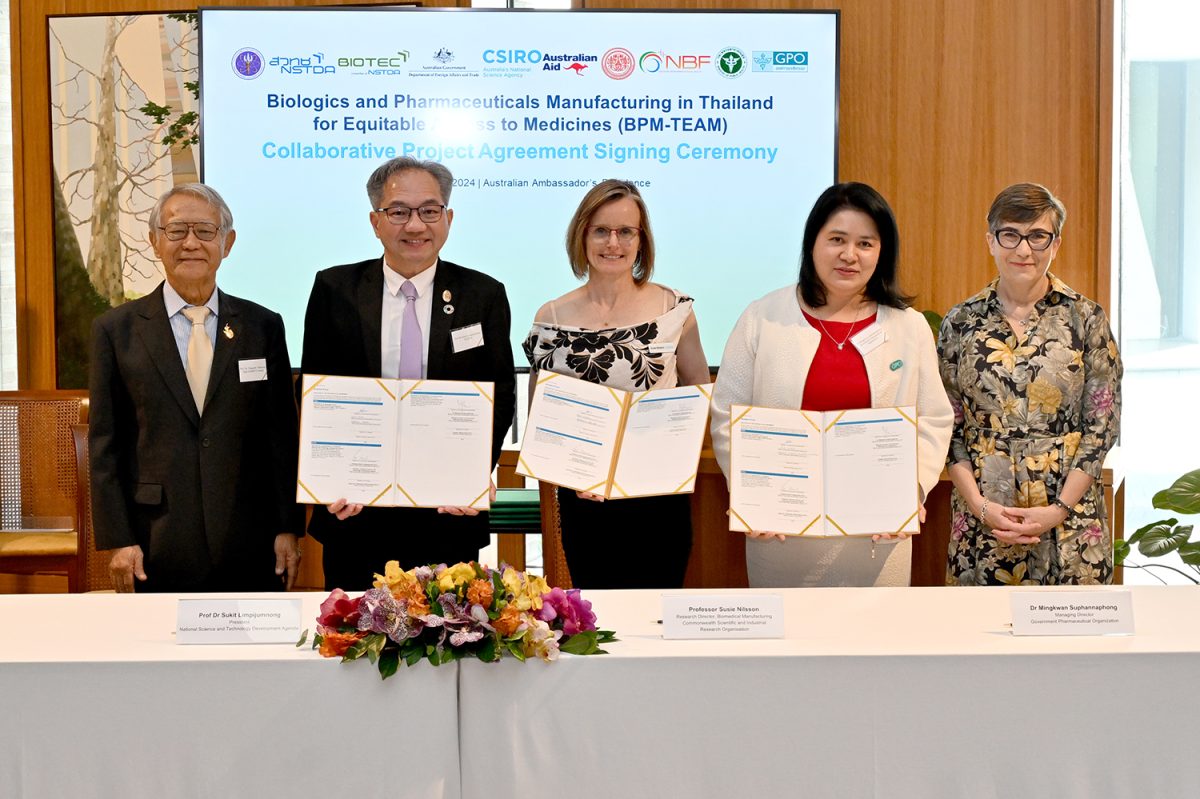
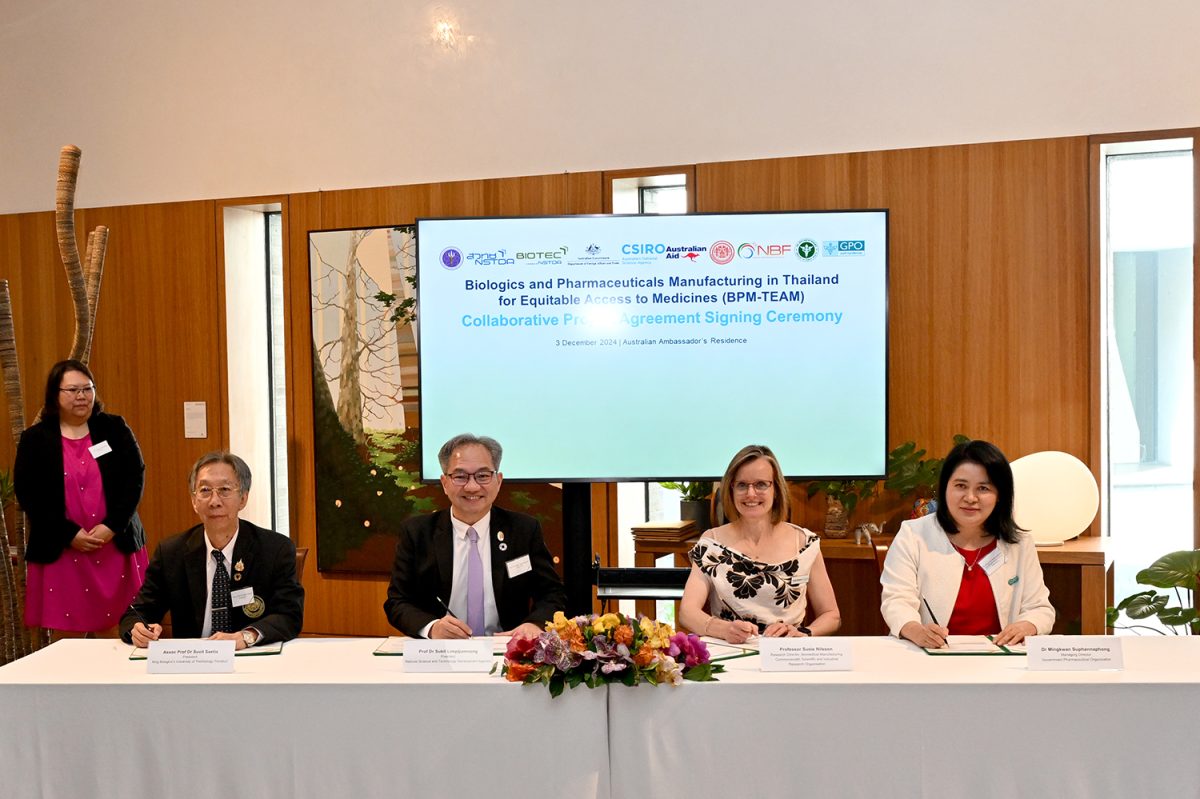
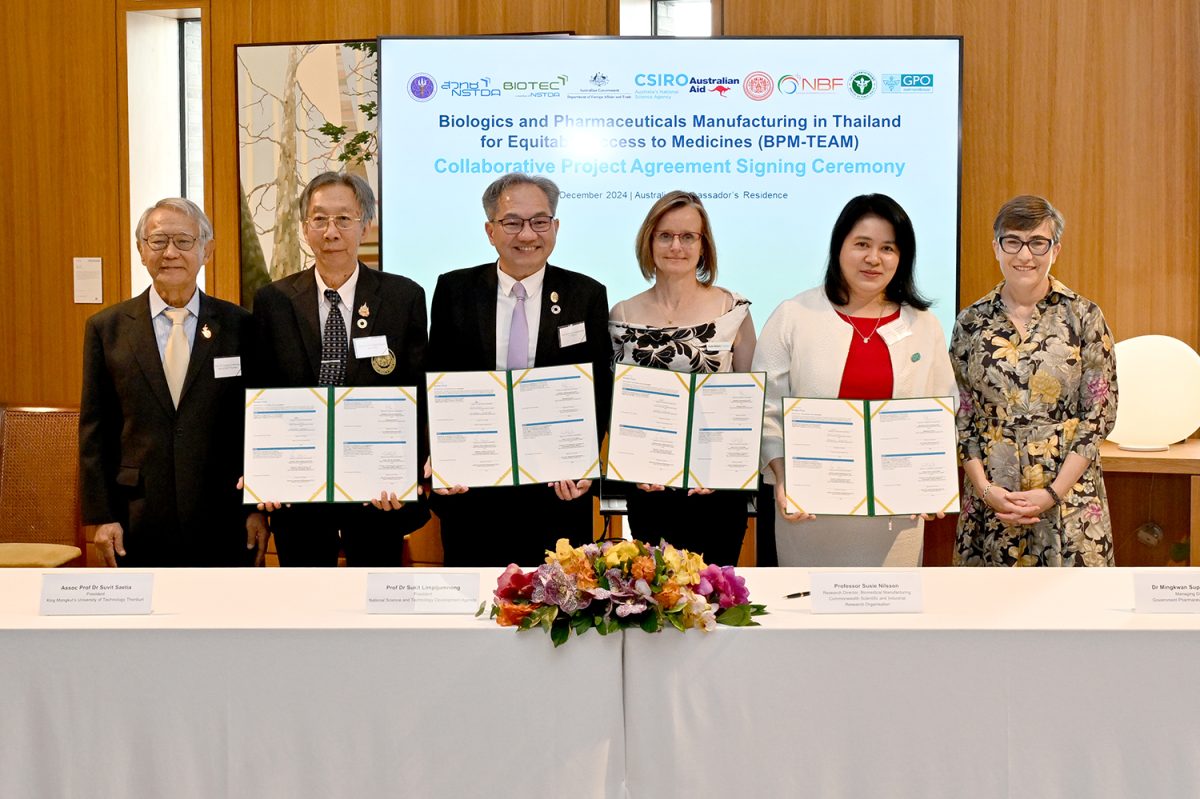
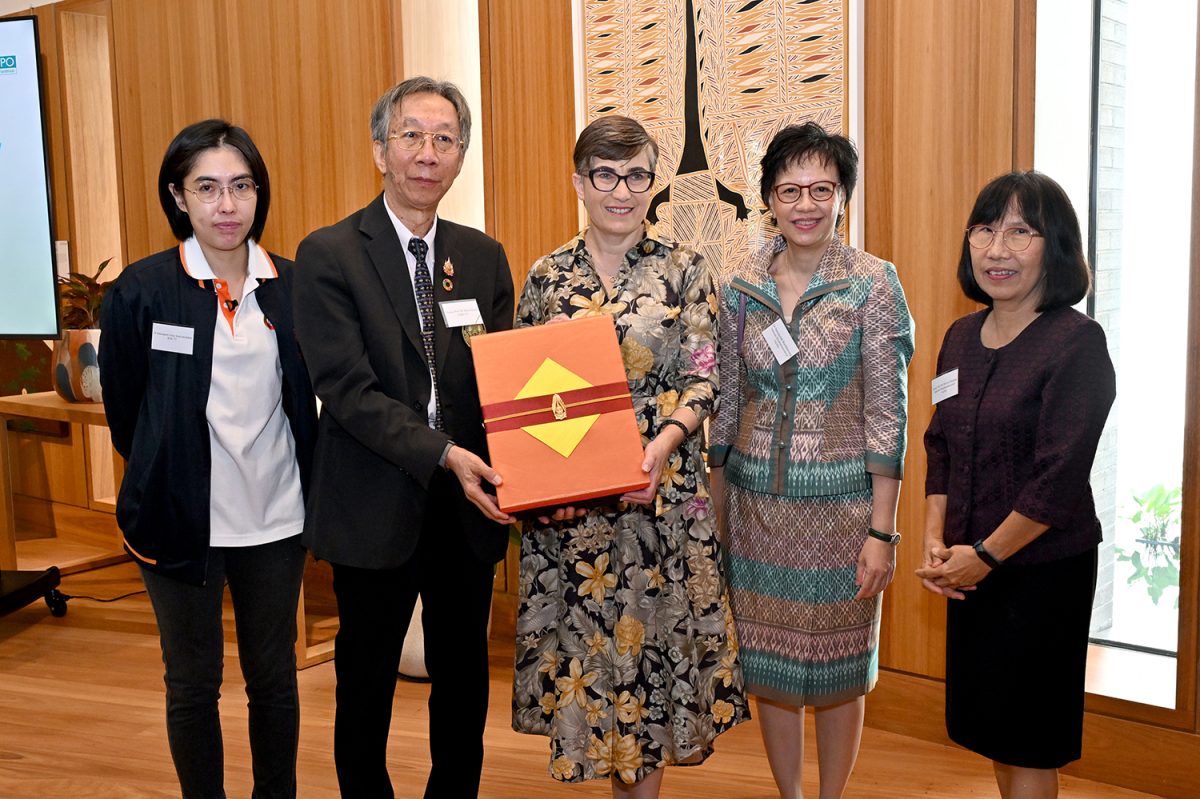
เมื่อวันที่ 3 ธันวาคม 2567 โรงงานต้นแบบผลิตยาชีววัตถุแห่งชาติ National Biopharmaceutical Facility (NBF) มหาวิทยาลัยเทคโนโลยีพระจอมเกล้าธนบุรี (มจธ.) โดย รศ.ดร. สุวิทย์ แซ่เตีย อธิการบดี มจธ. ร่วมบันทึกข้อตกลงความร่วมมือในการวิจัยและผลิตยาชีววัตถุในประเทศไทย ระหว่าง Commonwealth Scientific and Industrial Research Organization (CSIRO) โดย Prof. Susie Nilsson ผู้อำนวยการฝ่ายวิจัยการผลิตยาชีววัตถุ CSIRO ศ. ดร. ชูกิจ ลิมปิจำนงค์ ผู้อำนวยการศูนย์พันธุวิศวกรรมและเทคโนโลยีชีวภาพแห่งชาติ (ไบโอเทค) สำนักงานพัฒนาวิทยาศาสตร์และเทคโนโลยีแห่งชาติ (สวทช.) และ พญ.มิ่งขวัญ สุพรรณพงศ์ ผู้อำนวยการองค์การเภสัชกรรม (อภ.) ในโอกาสนี้ได้รับเกียรติจาก ดร.แอนเจลา แมคโดนัลด์ เอกอัครราชทูตออสเตรเลียประจำประเทศไทย และ ศาสตราจารย์เกียรติคุณ ดร.ยงยุทธ ยุทธวงศ์ นายกสภามหาวิทยาลัยเทคโนโลยีพระจอมเกล้าธนบุรี ร่วมเป็นสักขีพยาน ณ สถานทูตออสเตรเลีย ประจำประเทศไทย
การลงนามร่วมมือนี้ได้รับทุนจากรัฐบาลออสเตรเลียภายใต้โครงการ DFAT Partnerships for a Healthy Region โดยมีระยะเวลา 3 ปี เพื่อพัฒนาขีดความสามารถด้านการผลิตยาและวัคซีนในประเทศไทย โดยเน้นการพัฒนาบุคลากรร่วมทั้งการดำเนินการผลิตยาและวัคซีนแบบครบวงจร (end-to-end) เพื่อเพิ่มการเข้าถึงยาและวัคซีนที่จำเป็นในประเทศ
Australia teams up with Thailand for equitable access to medicines.
Australian Ambassador to Thailand, Dr Angela Macdonald witnessed the signing of two important project agreements between Australia’s national science agency CSIRO and Thailand’s National Centre for Genetic Engineering and Biotechnology, National Science and Technology Development Agency, Government Pharmaceutical Organisation and the National Biopharmaceutical Facility at the King Mongkut University of Technology Thonburi.
This collaboration will increase Thailand’s access to essential medicines and vaccines for its people and support local manufacturing.
The collaboration is one of 66 projects under the Australian Government’s Partnerships for a Healthy Region initiative. The $620 million initiative aims to support partner countries to help build resilient and equitable health systems, to help reduce disease risks and respond effectively to health emergencies.